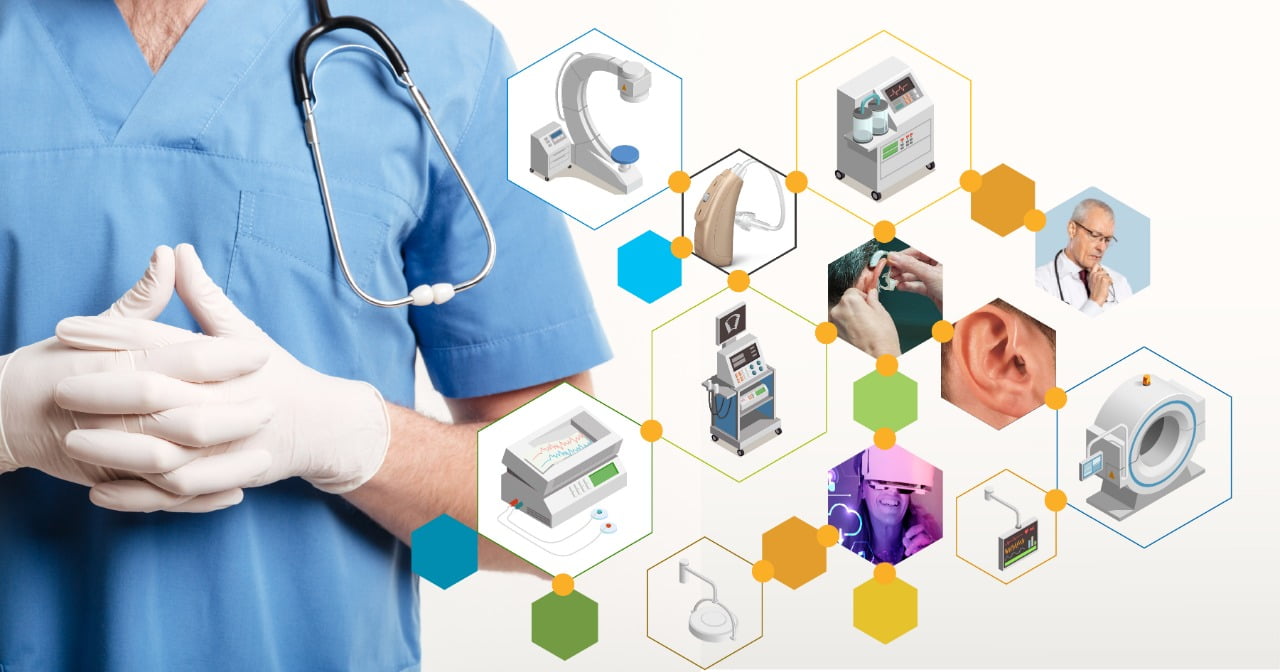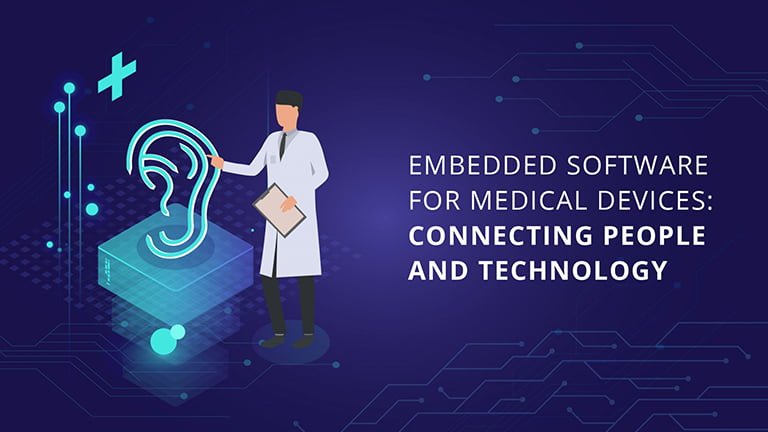Digitization and cutting-edge technology have brought a seismic change in how healthcare services are administered and delivered. Software has become an integral part of advanced medical devices and has helped patients to connect effectively with the latest medical devices. Today, software validation meeting international standards has become critical before launching the final product in the market.
Medical devices used in patient care directly impacts human lives. Manufacturers that have embedded software in medical devices need to follow robust software development and testing processes to capture all information necessary for compliance. Such processes ensure effective performance, accurate reading, and safety of devices.
What is the role of MicroGenesis in Testing for Medical devices and application?
With over 2 decades of experience in the healthcare industry, MicroGenesis has proved to be a key differentiator in the industry. MicroGenesis uses the latest frameworks and state-of-the-art ALM tools in order to develop software that runs on web, mobile and standalone devices.
MicroGenesis understands that safety is paramount for a medical device and ensures that the software meets the regulatory requirements specified in ISO 13485 and enable the release of safe software to the market. MicroGenesis automated software testing ensures rapid quality assurance of the developed software. Test automation speeds up the project schedules and reports on metrics for making informed decisions.
MicroGenesis is highly committed to the objective of staying ahead of the curve on the latest technologies in the medical devices industry. With that goal in view, we have signed up as members of industry recognized forums like Forum MedTech Pharma and Sensorik.
Forum MedTech Pharma and Sensorik are leadership organizations who are in medical and sensor technologies which are prime components of medical devices.
MicroGenesis teams have been actively participating in Medical expositions like Medica and EUHA for the past few years and building key networks and presence in the European markets.
What does MicroGenesis testing portfolio feature?
MicroGenesis testing portfolio features multiple offerings including:
- Robust Testing assets and framework
- Testing strategy development
- Test process, scoping, review and planning
- Risk analysis
- Defect management and configuration management
- Build-operate- support manage model for end-to-end customer engagement
- Evidence-based reports based on ISO 13485 & 62304 guidelines
MicroGenesis team has extensive experience with testing standalone, web, mobile and embedded software for medical devices on various platforms. The team meets the ever-growing demand for regression testing of medical software through a test automation framework. The solution meets the complexity of modern applications and is cost-effective, intuitive and easy to use.
Hearing Implant Software
MicroGenesis has been executing projects for past many years in the hearing implant and hearing aid industry. A cochlear implant is a surgically implanted active medical device that electrically stimulates the auditory nerve, bypassing the non-functional inner ear of people (“recipients”) with moderate-to-profound bilateral sensorineural hearing loss. At a minimum, a cochlear implant system consists of a receiver-stimulator connected to a multichannel electrode array that is surgically implanted within the cochlea and an external sound processing unit, worn behind the ear, which controls the implant over a transcutaneous radio-frequency link.
Each cochlear implant system must be configured to meet an individual’s electric hearing needs, using specialised software. This basic system is augmented with several accessories to control, track and monitor the system. The system also provides a mobile based app to allow the recipients (or their caregivers), user level control, tracking and monitoring of the system.
Stroke Rehabilitation System
MicroGenesis has been working on an advanced SRS with a leading medical device developer. SRS is an application used by therapists to assist the rehabilitation of stroke patients for the use of therapists and patients. This system processes EEG, SEMG and HRV signals acquired from the leads attached to patient limbs, to provide a feedback system that visualizes the progress made by the patient in usage of the affected limb.
It is clear that the systems will need to undergo rigorous intensive testing for compliance to FDA regulations on functionality, safety and reliability prior to market release for every feature set.
What are the types of testing for Medical devices and applications in MicroGenesis?
MicroGenesis team is a key player in achieving the goal of designing and executing testing across various testing types including:
- System End to End: We undertake wireless testing to test communication between devices and related wireless accessories. Testing the two-way data flow, interactions and functioning across the full stream of application software, devices, wired and wireless accessories.
- Functional: This testing is performed to test functionality of the application software, firmware, device and accessories, At the device and firmware level, this involves testing device interaction and control of processing parameters, error condition testing, range testing, verification of data logging.
- Exploratory: Exploratory tests are performed to test newly added features or functions based on the requirements.
- Localization: Through localization we provide application screenshots to support translations team, verification of text displayed in the application against translations provided, checking text clipping and cropping.
- Smoke and Regression: This testing checks critical functionalities prior to full-fledged release testing, testing functioning are added in prior releases features.
- GUI verification: This testing is done to check the correctness of GUI appearance and changes to actions performed.
- Safety and Performance: Test application performs a given action within specified time ranges and stops electrical stimulations within specified times when various stoppage conditions are initiated.
- Installation: This testing is performed to test clean installation and upgrade to new releases and ability to revert old releases.
- Firmware: Under this testing of micro controller programming logic, code functioning, system test to verify device interaction during execution, sound processing device operation modes, volume, sensitivity, LED indicator behaviour, pairing and use with wireless accessories are done.
- APIs: Testing of APIs are done to explore boundary conditions, generate sufficient parameter combinations to verify functionality and expose failures are done. We also verify API behavior in relations to the external environment like Files, peripheral devices etc. Verification of API call sequence and check for expected results are also carried out during the testing process. During the testing, we also check if documentation is adequate and provides enough information to use the API.
What does MicroGenesis testing for Medical devices feature?
MicroGenesis has top of the line infrastructure that enables testing on:
- Multiple platforms – The testing areas cover the spectrum of configuration and clinical software spanning several platforms – Standalone desktop applications, Web applications and Mobile Apps
- Multiple windows Operating Systems – Some project requirements mandate availability of the configuration clinical and user software on multiple OS versions based on their user demography. MicroGenesis has execution-ready infrastructure to performs testing on multiple versions of platform OS for e.g. windows, 7, 8, 8.1 10 and their various builds across languages.
- Application/Product Technologies – The products tested are developed on C#, WPF, UWP, Delphi technologies
MicroGenesis SME team encompassing highly experienced business analysts, test architects analyze each client project and implement testing methodology that would be the best fit which may be Automated testing, Manual verification, or a best proportion of both tailored to project requirements.
The SME team at MicroGenesis comprises of experts in test Automation with industry standard testing Tools such as Selenium, TestComplete, Python, Robot frameworks with Selenium/Python, Robotic process automation with UiPath. The test automation is implemented with data driven or hybrid automation frameworks based on project needs as designed by test architects.
With our commitment to adhering to ISO quality standards for medical devices, the test reporting is made with objective evidence. They undergo internal Quality compliance cheeks and review process in the internal Quality management System, in addition to the review process at the client side. We regularly submit to ISO audit process as mandated by our certification pre-requisite.
Conclusion
We also work closely with onsite teams and offer 24/7 support at every step along the way to ensure all verification and validation activities are conducted properly. Visit our services page to gather more information.





